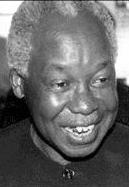The early years (1991-1998)
Sky Television did not originally launch with a
sports channel of their own - though sports programmes were occasionally broadcast on
Sky Channel - but instead chose to invest in
Eurosport instead, which was marketed as one of Sky's four channels upon its launch on 5 February 1989.
On 20 April 1991 - when the channel debuted on the
SES Astra 1B
satellite - it was started as Sky Sports. Eurosport and the Sports
Channel both discontinued their partnership upon the launch of Sky
Sports, even though Eurosport continued to be available on the Astra
platform.
The channel was sold as one of the major draws of the Sky system and
from 1 September 1992 Sky Sports was sold as a subscription channel and
encrypted using the
VideoCrypt system. It was the second Sky channel to be encrypted (following
Sky Movies in 1990). It initially aired sports such as
rugby and
golf in 1991, before acquiring rights to
German and
Italian league football in 1991 (both carried over from
The Sports Channel).
However, it was following the formation of the
Premier League
for the 1992/93 football season, believed to have been assisted by the
promise of higher TV payments, that Sky Sports became well known. By
bidding £302m, BSkyB beat the
BBC and
ITV to acquire the live and exclusive
Premier League football broadcasting rights for the
United Kingdom and
Republic of Ireland
for a five-year period. In doing so, they had taken live top-flight
English league football from terrestrial and free-to-air television for
the first time in its history.
More sports channels
Sky launched its second sport-dedicated channel,
Sky Sports 2 on 19 August 1994, three years after the original channel launched on the Marcopolo satellite on
BSB.
Sky Sports Gold, a channel dedicated to classic sport, in a similar vein to
ESPN Classic, launched on 1 November 1995, but ceased broadcasting after only a year on the air. On 16 August 1996,
Sky Sports 3 was launched. The launch promotion involved many top sporting figures such as
Dennis Bergkamp and
Ryan Giggs to help the launch of the channel. Sky Sports also acquired the rights to Scottish football and the
Coca-Cola Cup.
Sky Digital (1998-present)

Sky Sports share of viewing 2000-07
October 1998 saw BSkyB launch
Sky Digital from a new satellite,
Astra 2A at
28.2° east. The move to Sky Digital saw the launch of two new sports channels in quick succession. First
Sky Sports News, a 24-hour rolling sports news channel launched. This was followed by
Sky Sports Xtra,
in March 1999. The channel was initially available exclusively on Sky
Digital. However, by summer 2003, the channel had launched on
Virgin Media.
On 22 August 1999, Sky utilized a feature of the, then new, Sky Digital system to allow an
interactive football match to be shown. Viewers were given the ability to choose the things such as which camera they viewed during the
Arsenal vs.
Manchester United. The concept proved popular
[2] and soon Sky used the new
interactive service, known as
Sky Sports Active, for other sports.
Around 2001, a cross-branding deal ensured that a quiz under the name of the
Championship Manager series was produced with the Sky Sports name on it.
Kirsty Gallacher was the host of the
PlayStation 2 quiz.
In 2004, Sky signed an exclusive deal to broadcast live
English cricket matches for four seasons from 2006 to 2009 for a fee of £55 million a year.
[3] As with their other exclusive deals this caused some controversy, as the matches were no longer available on terrestrial TV.
[citation needed] Sky also signed an exclusive deal with the
BCCI to televise the tour of India.
[when?]
Following its earlier collapse, Sky purchased the majority of
Channel 4's stake in horse racing channel,
At the Races (the remainder of the stake went to
Arena Leisure, the other partner in the channel and owner of
Ascot Racecourse).
At The Races was insolvent, and despite being promoted as part of the
Sky Sports line up, had failed to turn a profit. It remains a provider
of live coverage to betting shops, however.
Prior to the start of the
2004-05 season,
Football First,
an interactive football programme was launched. The show typically airs
at 8.25pm and replays full coverage of the day's featured Premier
League match, followed through the night by highlights from every
Premier League match played on the day, which gives the viewer a chance
to see a match of their choice. Sky Sports won the rights to air
'near-live' coverage of the Barclays Premier League, permitting
Football First to air for another three years.
Sky Sports also snapped up the rights for the
A1 Grand Prix and has won the rights to
Speedway, for the next five years. The channel also has the rights to American sports, including
NFL and
WWE.
In 2007, a rival pay television operator, the Irish network
Setanta Sports,
acquired a share in the British rights to live Premier League matches,
breaking Sky's long-standing monopoly. Setanta bought up various other
rights such as
PGA Tour
golf and some top boxing matches, giving Sky a significant rival in the
pay television sports market for the first time, but Sky remained the
market leader by a wide margin. On 22 June 2009, Setanta's British
operations went into administration and ceased broadcasting, which saw
ESPN enter the UK market.
Owing to an Ofcom review of premium services, Sky Sports 1 and 2 launched on
digital terrestrial television through
BT Vision on 1 August 2010 and
Top Up TV the following day.
[4] This marked the first time Sky Sports premium channels have been shown via DTT since
ITV Digital collapsed in May 2002.
On 28 April 2011, Sky Sports' interactive features were made available on Virgin Media,
[5] following Virgin's sale of
Virgin Media Television to BSkyB.
[6]













